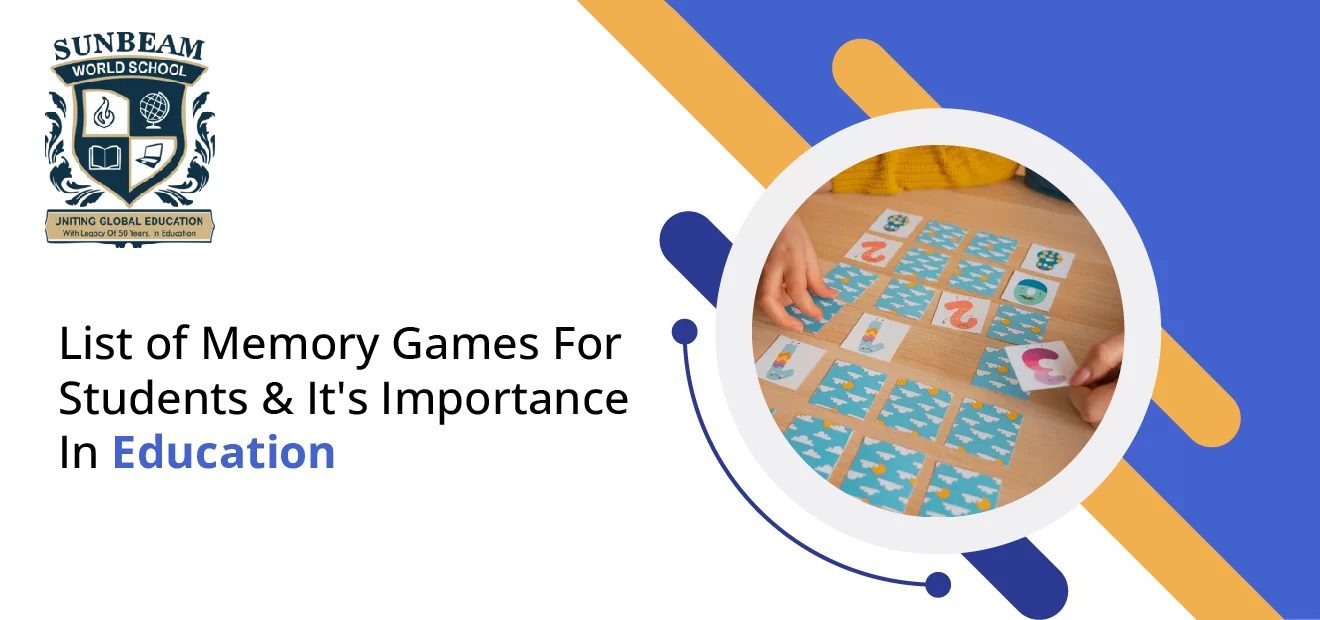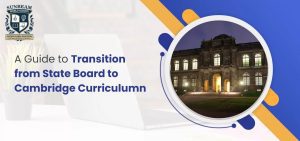In today’s rapidly evolving world, education has transformed into a dynamic and multifaceted landscape. The traditional methods of teaching are being redefined, making way for innovative and engaging approaches. Among these, memory games and activities have emerged as powerful tools to enhance students’ cognitive abilities, promote active learning, and boost their confidence. At Sunbeam World School, we recognize the immense potential of these educational tools, and our commitment to spreading awareness about their importance to parents is unwavering.
The Significance of Memory Games and Activities
Enhancing Cognitive Abilities
Memory games and activities are not merely fun and games, they are powerful tools that stimulate various cognitive functions. When students engage in these activities, they exercise their memory, attention, and problem-solving skills. These mental workouts are essential for building a strong foundation of cognitive abilities that will serve students well in all aspects of their education.
Take, for example, the classic game of “Memory,” where players must find matching pairs of cards by remembering their positions. This seemingly simple game requires players to pay close attention, use their memory to recall card positions and strategize to find matches. Over time, as students engage in such activities, they sharpen their cognitive skills, enabling them to process complex information more quickly.
Pro-Active Learning
One of the most significant merits of memory games is that they encourage active learning. Unlike passive learning methods where students are just recipients of information, these methods need students to actively participate, enhancing their learning process and making them more likely to comprehend and retain the subject.
Imagine a scenario where a student is learning about historical events. Instead of passively reading about them, they can engage in a memory game where they match historical events with their corresponding dates or key figures. This participation not only makes learning more engaging but also helps students connect new information and fosters a deeper understanding of the subject matter.
Boosting Self- Confidence
As students complete memory challenges and activities, they gain confidence in their abilities. This boost in self-assurance has a profound impact on their overall academic performance and personal development.
Imagine a young student struggling with mathematics. Through interactive memory activities that involve math problems and solutions, they gradually build confidence in their mathematical skills. This newfound confidence not only helps them excel in mathematics but also extends to other subjects and life experiences, empowering them to face challenges with resilience and determination.
5 Easy Memory Games
Memory (Concentration)
Memory, also known as Concentration, is a classic card game. A set of playing cards with matching pairs of images or words is spread face-down. Players take turns flipping two cards over to find a match. If they match, the player keeps the pair; otherwise, they are turned face-down again.
Flashcards
Flashcards are cards with a question or term on one side and the answer or definition on the other. Students use them to quiz themselves or others on various topics.
Simon Says
In Simon Says, one player (Simon) gives commands to the group, but the command must begin with “Simon says.” If Simon doesn’t say “Simon says” before the command, players should not follow it.
Puzzle Games (e.g., Sudoku)
Sudoku is a number puzzle game where players fill a grid with numbers, making sure that each row, column, and smaller subgrid contains all the digits from 1 to 9 without repetition.
Matching Games
Matching games involve sets of cards or tiles with matching pairs of images, numbers, or words. Players flip over two cards at a time, trying to find matching pairs.
Reasons that Make Memory Games Beneficial for Students
Improved Memory Retention
Memory games, such as flashcards and memory matching, are specifically designed to reinforce what students have learned. These games require students to recall information from memory, reinforcing neural pathways associated with the subject matter and improving memory retention over the long term.
At Sunbeam World School, we incorporate various memory-boosting activities into our curriculum. For example, our students engage in memory challenges where they must memorize and recite poetry, historical facts, or scientific formulas. This not only helps them excel academically but also equips them with valuable memory skills they can use throughout their lives.
Enhanced Critical Thinking
Memory games such as puzzles and brainteasers, go beyond memory enhancement. They also challenge students’ critical thinking abilities. These activities require students to analyze patterns, make connections, and devise strategies to solve problems.
In our classrooms, we instill critical thinking as a fundamental aspect of our curriculum. We integrate memory games that involve solving puzzles related to literature, science, and mathematics.
Fun and Engaging Learning
One of the hallmarks of memory games is that they make learning enjoyable. Education should be a stimulating and engaging experience, and memory games contribute significantly to this goal. These activities break the monotony of traditional teaching methods and motivate students to actively participate in their education.
We understand the importance of making learning fun. We incorporate memory games and activities into our daily routines to keep our students engaged and excited about learning. For example, our interactive history lessons involve timeline-building activities that challenge students to arrange historical events in chronological order. This hands-on approach not only enhances their understanding of history but also instills a genuine passion for the subject.
Sunbeam World School’s Approach to Memory Games and Activities
Customized Learning Plans
We understand that every student is unique, and one-size-fits-all approaches to education fall short of unlocking their full potential. Therefore, at Sunbeam World School, we tailor memory games and activities to match each student’s learning style and pace. This customization ensures that every child benefits from these tools in a way that suits their individual needs as our educators carefully select memory games and activities that align with the subjects being taught.
For example, if a student struggles with spelling and vocabulary, we design memory games that focus on word recognition and spelling practice. During science classes, students participate in memory games involving the periodic table or anatomy diagrams. Conversely, if a student excels in mathematics, we provide memory challenges that are math-centric, allowing them to further develop their mathematical prowess.
Continuous Assessment
To gauge the effectiveness of memory games and activities, we employ a system of continuous assessment. We regularly evaluate student progress, both in terms of academic achievement and cognitive development. This assessment helps us refine our approach and adapt to the evolving needs of our students.
Our educators keep a close eye on each student’s performance in memory activities, identifying areas of strength and areas that may need improvement. This data-driven approach allows us to provide targeted support and guidance, ensuring that every student maximizes their potential.
In conclusion, memory games and activities are not just tools for fun, they are essential components of an effective and quality education. At Sunbeam World School, we are committed to spreading awareness about the significance of memory games and activities to parents, and we incorporate them seamlessly into our curriculum with customized learning plans that empower students to excel academically while nurturing their cognitive development and critical thinking skills every day.








